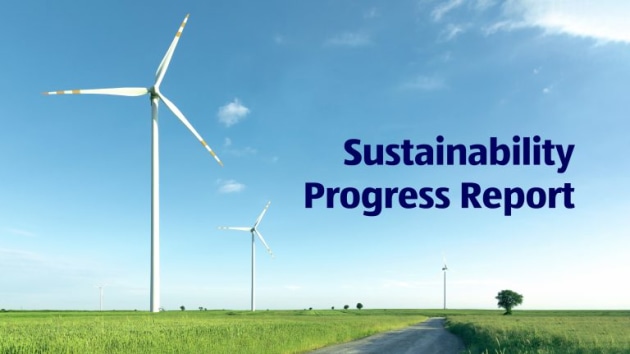Aldi Australia has launched its inaugural Sustainability Progress Report, a review and update of its progress on initiatives that positively impact the environment, its customers, and people and the communities in which it operates.
The report marks the first time Aldi has consolidated details of the work it has undertaken to power its operations with 100 per cent renewable energy, reduce and improve recyclability of plastic packaging on its shelves, as well as delivering on its zero-waste commitment.
The report will act as a benchmark for future progress assessments.
“Sustainability has become a fundamental part of business decision-making at the company, and the time was right to collate the many environmental and social commitments made, and the progress achieved in each,” said Daniel Baker, Aldi Australia’s director.
“We have made it our mission to offer Aldi customers quality products that make sustainability affordable.
“That means sustainability is central to every business decision we take, ensuring our contribution to the health and well-being of our customers, our communities, our people and the planet, have a long-lasting and positive impact.”
In 2021, Aldi became the first Australian supermarket to achieve its 100 per cent renewable energy target, six months ahead of schedule.
Every one of its stores, offices and warehouses are now powered by renewable energy, reducing the brand’s carbon emissions by 85 per cent (244,000 tonnes) per year.
“As one of Australia’s largest grocery retailers, we recognise we have an essential role to play in supporting the country’s transition to renewable energy sources,” added Baker.
“By procuring a 10-year power purchase agreement with local companies, we are ensuring we meet our own 100 per cent renewable energy needs, while proudly supporting the growth of the Australian renewable energy sector.”
The Sustainability Progress Report highlights Aldi’s work in partnership with business partners through the supply chain.
Aldi’s reduction of plastics and introduction of sustainable packaging means that by the end of 2025, all its own-label packaging will be 100 per cent recyclable, reusable or compostable. The company also aims to reduce its plastics packaging by 25 per cent (as compared to 2019) by the end of 2025.
Other key initiatives and achievements include:
- Aldi was the first, and is the only, Australian supermarket to be powered by 100 per cent renewable energy;
- Aldi’s commitment to zero waste to landfill by 2025 is on track, with 80 per cent of that target now delivered;
- Aldi was the first Australian supermarket to start removing plastic straws from drinks cartons;
- Aldi was the first Australian supermarket to remove single-use plastic tableware from its shelves, and the first to replace plastic cotton buds with a paper-stemmed version;
- Aldi has never offered single-use plastics carrier bags;
- All Aldi paper and pulp-based products are certified sustainable or use 100 per cent recycled materials; and
- Aldi was the first Australian supermarket to launch a battery recycling program.
All of this is being achieved while never wavering from its mission to deliver Australians the best value groceries.
“Some of our customers might be surprised to know that we have never sold tobacco in our Australian stores,” said Baker.
“Or that we were the first Australian supermarket to introduce reusable crates, a battery recycling program, and to remove artificial colouring and added MSG from our products.
“By consolidating these initiatives through this report, we have highlighted the progress we have made so far, as well as the size of the task ahead of us.”
Aldi’s focus on giving back has seen the business donate nearly 49 million meals since 2016 to support those in need, and contribute 8.3 million meals in 2021 alone.
Aldi has raised $2.25 million for its national charity partner, Camp Quality, which has helped 3800 kids facing cancer attend a Camp Quality camp.
The Sustainability Progress Report further showcases Aldi’s focus on responsible sourcing, with 100 per cent of the grocers’ cocoa and tea products now certified, 100 per cent of its fish and seafood products responsibly sourced, and it has committed to using 100 per cent sustainable cotton for its Aldi exclusive garments and household textiles, by 2025.
Aldi’s Australia-first sourcing approach means 100 per cent of its fresh meat, eggs, milk, salmon and poultry is locally sourced, and 97 per cent of its fruit and vegetables are sourced from Australian farms.
By developing enduring partnerships with Australian farmers and business partners, the grocer supports the longevity of the supply of local, quality produce, and enhances the livelihoods of those it relies on most.
Aldi Australia’s inaugural Sustainability Progress Report can be found here.







